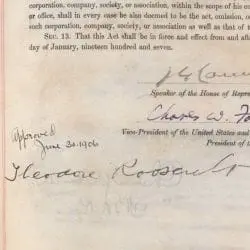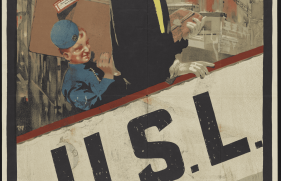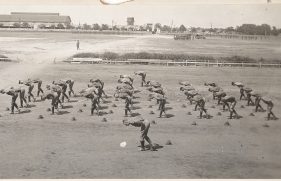Fifty-ninth Congress of the United States of America;
At the First session,
Begun and held at the City of Washington on Monday, the fourth day of December, one
thousand nine hundred and five.
AN ACT
For preventing the manufacture, sale, or transportation of adulterated or misbranded or poisonous or deleterious foods, drugs, medicines, and liquors, and for regulating traffic therein, and for other purposes.
Be it enacted by the Senate and House of Representatives of the United States of America in Congress assembled, That it shall be unlawful for any persons to manufacture within any Territory or the District of Columbia any article of food or drug which is adulterated or misbranded, within the meaning of this Act; and any person who shall violate any of the provisions of this section shall be guilty of a misdemeanor, and for each offense shall, upon conviction thereof, be fined not to exceed five hundred dollars or shall be sentenced to one year’s imprisonment, or both such fine and imprisonment, in the discretion of the court, and for each subsequent offense and conviction thereof shall be fined not less than one thousand dollars or sentenced to one year’s imprisonment, or both such fine and imprisonment, in the discretion of the court.
SEC. 2. That the introduction into any State or Territory or the District of Columbia from any other State or Territory or the District of Columbia, or from any foreign country, or shipment to any foreign country of any article of food or drugs which is adulterated or misbranded, within the meaning of this Act, is hereby prohibited; and any person who shall ship or deliver for shipment from any State or Territory or the District of Columbia to any other State or Territory or the District of Columbia, or to a foreign country, or who shall receive in any State or Territory for the District of Columbia from any other State or Territory or the District of Columbia, or foreign country, and having so received, shall deliver, in original unbroken packages, for pay or otherwise,
3
article duly authenticated by the analyst or officer making such examination, under the oath of such officer. After the judgment of the court, notice shall be given by publication in such manner as may be prescribed by the rules and regulations aforesaid.
SEC. 5. That it shall be the duty of each district attorney to whom the Secretary of Agriculture shall report any violation of this Act, or to whom any health or food or drug officer or agent of any State, Territory, or the District of Columbia shall present satisfactory evidence of any such violation, to cause appropriate proceedings to be commenced and prosecuted in the proper courts of the United States, without delay, for the enforcement of the penalties as in such case herein provided.
SEC. 6. That the term “drug,” as used in this Act, shall include all medicines and preparations recognized in the United States Pharmacopeia or National Formulary for internal or external use, and any substance or mixture of substances intended to be used for the cure, mitigation, or prevention of disease of either man or other animals. The term “food,” as used herein, shall include all articles used for food, drink, confectionery, or condiment by man or other animals, whether simple, mixed, or compound.
SEC. 7. That for the purpose of this Act and article shall be deemed to be adulterated:
In case of drugs:
First. If, when a drug is sold under or by a name recognized in the United States Pharmacopeia or National Formulary, it differs from the standard of strength, quality, or purity, as determined by the test laid down in the United State Pharmacopeia or National Formulary official at the time of investigation: Provided, That no drug in the United States Pharmacopeia or National Formulary shall be deemed to be adulterated under this provision if the standard of strength, quality, or purity be plainly stated upon the bottle, box, or other container thereof although the standard may differ from that determined by the test laid down in the United States Pharmacopeia or National Formulary.
Second. If its strength or purity fall below the professed standard or quality under which it is sold.
In the case of confectionery:
If it contains terra alba, barytes, talc, chrome yellow, or other mineral substance or poisonous color or flavor, or other ingredient deleterious or detrimental to health, or any vinous malt or spirituous liquor or compound or narcotic drug.
In the case of food:
First. If any substance has been mixed and packed with it so as to reduce or lower or injuriously affect its quality or strength.
Second. If any substance has been substituted wholly or in part for the article.
Third. If any valuable constituent of the article has been wholly or in part abstracted.
7
Act shall be construed to import both the plural and the singular, as the case demands, and shall include corporations, companies, societies and associations. When construing and enforcing the provisions of this Act, the act, omission, or failure of any officer, agent, or other person acting for or employed by any corporation, company, society, or association as well as that of the person.
SEC. 13. That this Act shall be in force and effect from and after the first day of January, nineteen hundred and seven.
J G Cannon
Speaker of the House of Representatives.
Charles W. Fairbanks
Vice-President of the United States and President of the Senate
Approved June 30, 1906
Theodore Roosevelt





